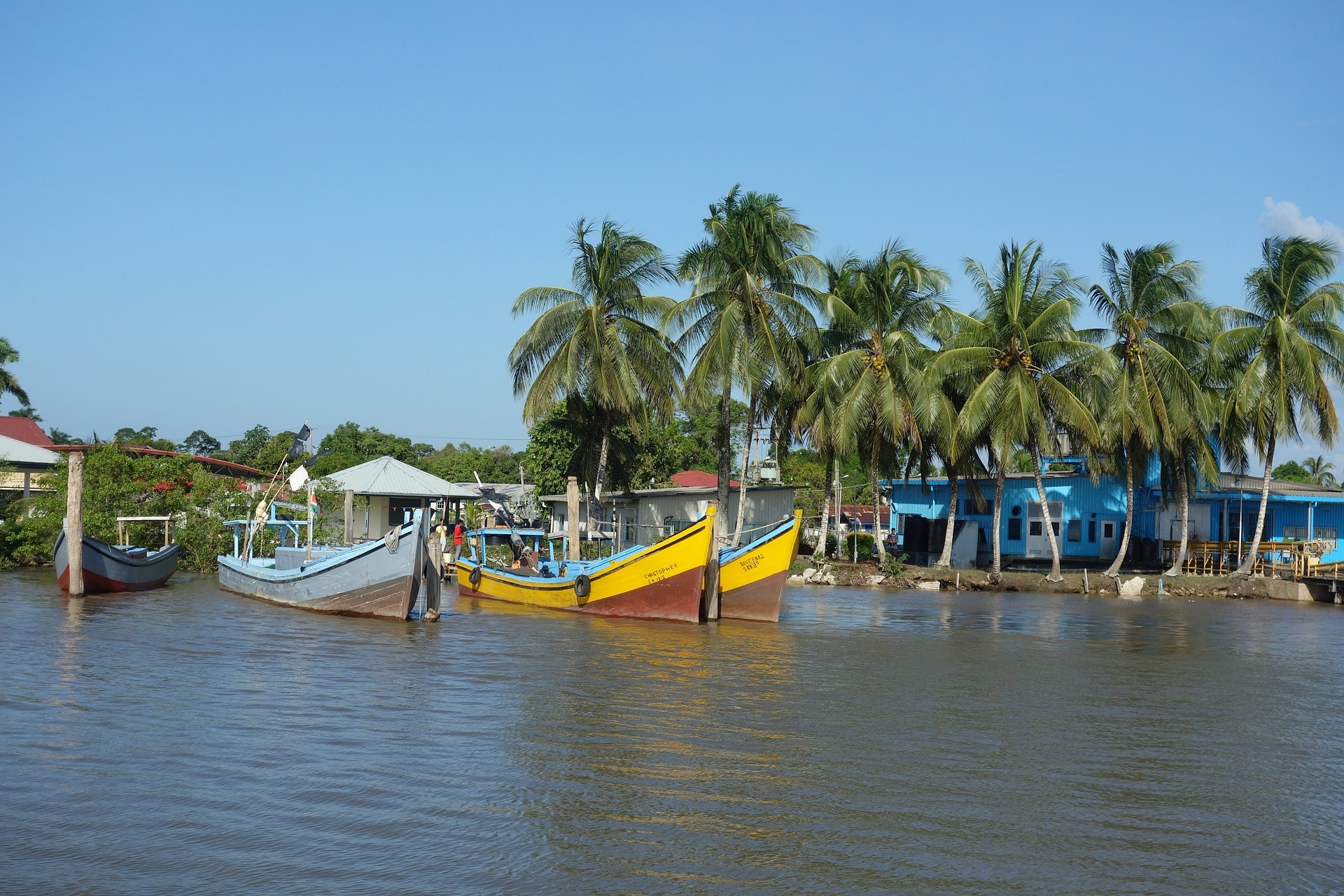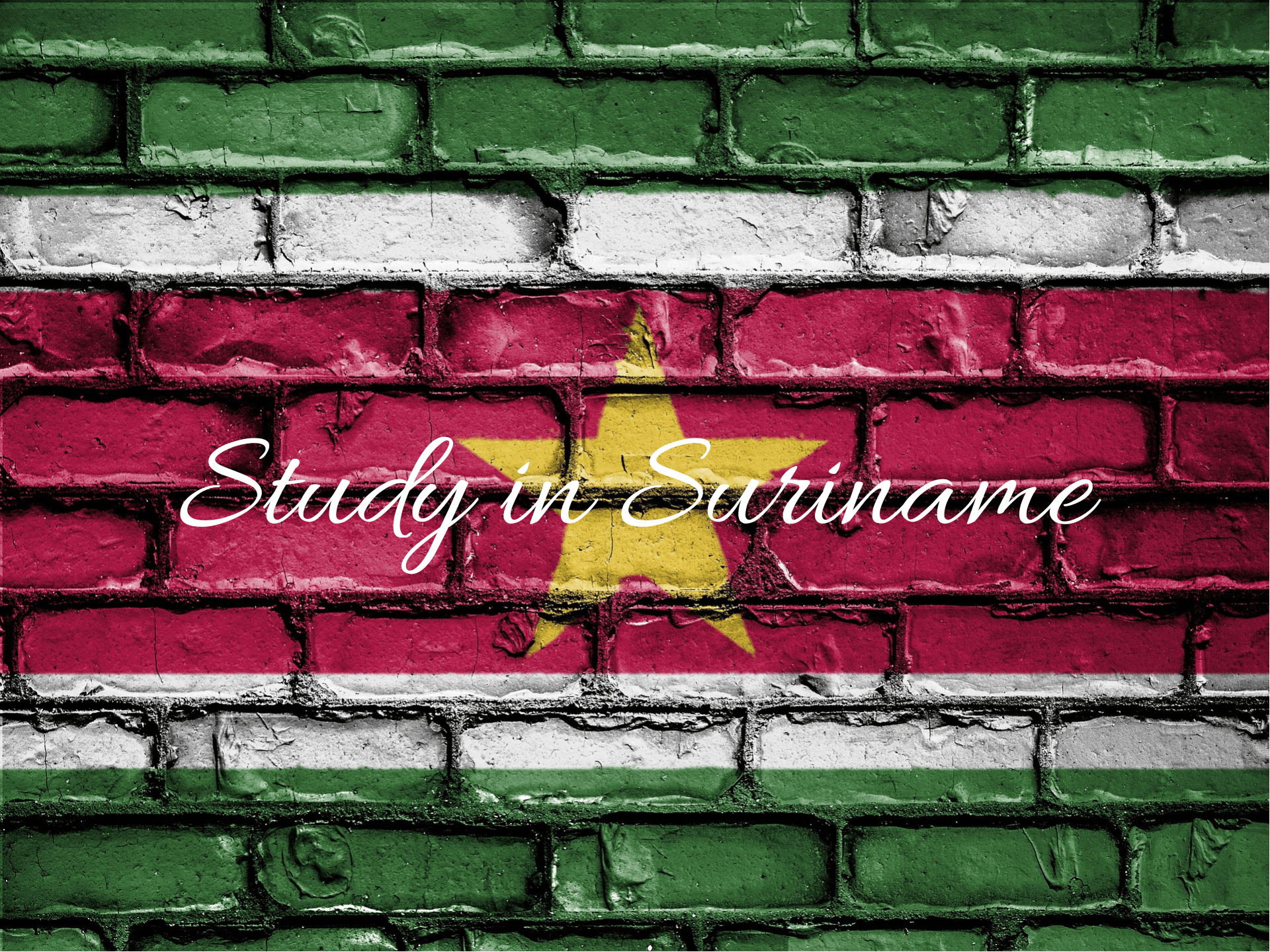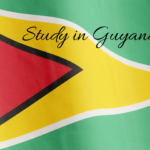
Why should you consider studying in Suriname?
Why Suriname?
There are several reasons why you should consider studying in Suriname:
- Affordable tuition fees: The tuition fees for higher education in Suriname are relatively low compared to other countries. This makes it an attractive option for students looking for an affordable education.
- High-quality education: Suriname has several universities and higher education institutions that offer quality education in various fields, including medicine, law, engineering, and business.
- Personal growth: Studying abroad in Suriname offers an opportunity for personal growth, including gaining independence, adapting to new cultures, and developing cross-cultural communication skills.
- Multicultural environment: Suriname is a melting pot of cultures with a diverse population, including Creole, Hindustani, Javanese, Maroon, and Indigenous people. Studying in Suriname offers an opportunity to experience and learn from this multicultural environment.
- Language proficiency: Suriname is a multilingual country with Dutch being the official language. Studying in Suriname offers an opportunity to improve your proficiency in Dutch, which can be an advantage when seeking employment or pursuing further studies in the Netherlands or other Dutch-speaking countries.
- Natural beauty: Suriname is a country with abundant natural beauty, including pristine rainforests, waterfalls, and rivers. Studying in Suriname offers an opportunity to experience this natural beauty and explore the country’s biodiversity.
It’s important to note that studying in Suriname may have its challenges, such as language barriers, cultural differences, and limited opportunities in certain fields. However, with proper research and preparation, studying in Suriname can be a rewarding experience.
What are the best courses to study in Suriname?
Suriname has several good courses of study that students can pursue. Some of the best courses to study in Suriname include:
- Medicine: Suriname has several excellent medical schools that offer courses in medicine, nursing, and other healthcare fields.
- Law: Studying law in Suriname can be a great way to prepare for a career in the legal profession. There are several law schools in the country that offer courses in various areas of law.
- Engineering: Suriname has a growing economy, and there is a need for engineers to help build and maintain infrastructure. There are several universities in Suriname that offer courses in engineering.
- Business: Studying business in Suriname can be a great way to prepare for a career in management, entrepreneurship, or finance. There are several universities in the country that offer courses in business and economics.
- Computer Science: Suriname has a growing IT sector, and studying computer science can be a great way to prepare for a career in this field. There are several universities in the country that offer courses in computer science and IT.
- Environmental Science: Suriname has a rich and diverse ecosystem, and studying environmental science can be a great way to learn about conservation and sustainability. There are several universities in Suriname that offer courses in environmental science and related fields.
Overall, Suriname has a good range of courses of study to choose from, and students can find a program that suits their interests and career aspirations.
Top Universities in Suriname
Suriname has several universities and higher education institutions that offer a variety of courses and degrees. Here are some of the top universities in Suriname:
- Anton de Kom University of Suriname: This is the largest and most prestigious university in Suriname. With a wide range of faculties, including law, medicine, engineering, and economics.
- AdeKUS Institute for Graduate Studies and Research: This is a postgraduate research institute affiliated with Anton de Kom University, offering masters and Ph.D. programs in various fields.
- The University of the Southern Caribbean: This is a private, Christian university located in Paramaribo, offering a range of undergraduate and graduate programs in fields such as business, education, and theology.
- Universiteit van Suriname: This is a private university in Paramaribo, offering undergraduate and graduate programs in business, law, and education.
- Institute of International Relations of the Americas: This is a private institute in Paramaribo, offering undergraduate and graduate programs in international relations, diplomacy, and law.
- Suriname International Study Center: This is a private institute in Paramaribo, offering undergraduate and graduate programs in business, management, and hospitality.
These are some of the top universities in Suriname, but there are other universities and higher education institutions in the country that also offer quality education and programs.
Suriname is a Dutch-speaking country. If you are interested in a country that has English as its official language, then you can consider studying in Guyana. We have a dedicated and detailed article on how can you study in Guyana.
How to study in Suriname?
If you’re interested in studying in Suriname, here are some steps you can take:
- Research the universities: Look up the universities in Suriname that offer the course or program you’re interested in. Check their website and admission requirements.
- Choose a university and program: Once you have a list of potential universities. Choose the one that fits your needs and interests the best. Check the program requirements, such as language proficiency and academic qualifications.
- Apply for admission: Follow the application process of the university you chose. This may include submitting your academic transcripts, language proficiency scores, letters of recommendation, and a personal statement.
- Obtain a student visa: Once you’re accepted into a program. You’ll need to obtain a student visa to study in Suriname. Check with the Surinamese embassy or consulate in your country to find out the requirements and procedures.
- Arrange for accommodation: You’ll need to arrange for accommodation in Suriname. Many universities offer dormitories or student housing, or you can look for private accommodation.
- Prepare for your studies: Before you leave for Suriname, make sure you have all the necessary documents, such as your passport, visa, and health insurance. You may also need to make travel arrangements and prepare for living in a new country.
Studying in Suriname can be a rewarding experience, as the country offers a unique blend of cultural diversity, natural beauty, and academic excellence.
Essential Requirements
The essential requirements to study in Suriname depend on the university and program you’re applying for, but here are some general requirements:
- Academic qualifications: You’ll need to have a high school diploma or equivalent to apply for an undergraduate program or a bachelor’s degree to apply for a master’s program.
- Language proficiency: You’ll need to demonstrate proficiency in the language of instruction, which is typically Dutch or English. You may need to submit scores from a language proficiency test such as TOEFL or IELTS.
- Admission requirements: Each university and program has its own admission requirements. Which may include letters of recommendation, a personal statement, and academic transcripts.
- Student visa: You’ll need to obtain a student visa to study in Suriname. This may require proof of enrollment in a university, financial support, and a health certificate.
- Health insurance: You’ll need to have health insurance coverage while studying in Suriname. Some universities may offer health insurance for their students, or you can purchase private insurance.
- Accommodation: You’ll need to arrange for accommodation in Suriname, either through the university or by finding private housing.
It’s important to check the specific requirements for the university and program you’re interested in before applying. Some programs may have additional requirements, such as a portfolio or an entrance exam.
The estimated cost of fulfilling your study abroad dream
The costs of studying in Suriname can vary depending on the university, program, and lifestyle you choose. Here are some of the costs you may incur while studying in Suriname:
- Tuition fees: Tuition fees in Suriname can range from around SRD 5,000 to SRD 15,000 per year for undergraduate programs and SRD 15,000 to SRD 30,000 per year for master’s programs.
- Accommodation: The cost of accommodation in Suriname can vary depending on the location and type of accommodation. On-campus dormitories or shared apartments can cost around SRD 500 to SRD 1,500 per month, while private apartments can cost more.
- Food and groceries: The cost of food and groceries can vary depending on your eating habits and preferences. Eating out can cost around SRD 30 to SRD 50 per meal. While groceries can cost around SRD 500 to SRD 1,000 per month.
- Transportation: The cost of transportation in Suriname can vary depending on the mode of transport and the distance you need to travel. Buses and taxis are available in most areas and can cost around SRD 2 to SRD 10 per ride.
- Health insurance: Health insurance is mandatory for international students in Suriname and can cost around SRD 1,000 to SRD 2,000 per year.
Overall, the cost of studying in Suriname is relatively affordable compared to other countries. However, it’s important to budget carefully and plan ahead to ensure you have enough funds to cover all your expenses while studying in Suriname.
Academic Scholarships and Grants
There are several academic scholarships and grants available for international students who wish to study in Suriname. Here are some options you can consider:
- Suriname Government Scholarships: The Suriname government offers scholarships for international students from the Caribbean and Latin American countries to study in Suriname. These scholarships cover tuition fees, accommodation, and a monthly stipend.
- Erasmus+ Scholarships: Erasmus+ is a program funded by the European Union that provides scholarships for international students to study in Europe and other partner countries, including Suriname. The program covers tuition fees, travel costs, and a monthly allowance.
- Dutch Government Scholarships: The Dutch government offers scholarships for international students from developing countries to study in the Netherlands and its overseas territories, including Suriname. These scholarships cover tuition fees, travel costs, and a monthly allowance.
- University Scholarships: Many universities in Suriname offer scholarships and grants to international students based on academic merit, financial need, and other criteria. Check with the university you’re interested in to find out what scholarships are available.
- Private Scholarships: There are also several private scholarships available for international students who wish to study in Suriname. These scholarships are offered by organizations, foundations, and corporations and may have specific eligibility criteria and application procedures.
It’s important to note that the application process for scholarships and grants may vary, and the competition for these awards can be high. Be sure to check the eligibility criteria, application deadlines, and procedures carefully and submit your application well ahead of time.
Step-by-step process to get your Student Visa
Here is a step-by-step process to obtain a student visa for Suriname:
- Get acceptance from a Suriname University: Before applying for a student visa. You must obtain acceptance from a Suriname university or educational institution.
- Check the visa requirements: Check the visa requirements for Suriname, as they may vary depending on your country of origin. Generally, you will need a passport, a completed visa application form, a recent passport-sized photo, and proof of enrollment in a Suriname educational institution.
- Prepare the required documents: Gather all the necessary documents. Including your passport, visa application form, a passport-sized photo, acceptance letter from the Suriname University or educational institution, and proof of financial support.
- Apply for the visa: Submit your visa application at the Suriname embassy or consulate in your country of residence. You may need to attend an interview as part of the application process.
- Wait for the visa processing: The processing time for a Suriname student visa may vary, but it usually takes around four to six weeks.
- Receive your visa: Once your visa is approved. You will receive it in your passport or via email if you applied for an e-visa. Make sure to check the visa details, including the validity dates and any conditions.
- Book your travel: Book your travel to Suriname, making sure to arrive before the start date of your program.
- Register with the university: Upon arrival in Suriname, register with the university and attend any orientation sessions.
It’s important to note that the visa application process may vary depending on your country of residence and the specific requirements of the Suriname embassy or consulate. It’s recommended to check with the embassy or consulate beforehand to ensure you have all the necessary documents and information for your visa application.
What are after-study opportunities in Suriname?
After completing your studies in Suriname, you may be interested in staying and working in the country. There are several after-study work and settling opportunities available to you. Here are some of the options you can consider:
- Job opportunities: Suriname has a growing economy with opportunities in various sectors such as mining, agriculture, forestry, and tourism. You can look for job opportunities in these sectors or other industries based on your skills and qualifications. Non-Surinamese nationals must obtain a work permit to work in Suriname. The work permit is issued by the Ministry of Labor, Technological Development, and Environment. To obtain a work permit, you must have a job offer from a Suriname-based employer.
- Entrepreneurship: Starting a business in Suriname is another option to consider. The government of Suriname offers several incentives for entrepreneurs, including tax breaks, access to financing, and business development services. If you wish to start a business in Suriname. You must obtain a business permit from the Ministry of Trade, Industry, and Tourism. The permit allows you to conduct business activities in Suriname and hire employees.
- Volunteer work: Volunteering with local organizations is another way to gain experience and contribute to the community in Suriname. You can look for volunteer opportunities in various sectors such as education, healthcare, and community development.
Suriname is a multilingual country with Dutch being the official language. Proficiency in Dutch can be an advantage when seeking employment or starting a business in Suriname. English and Sranan Tongo are also widely spoken in the country. Networking is an important aspect of finding work and settling in Suriname. You can attend networking events, and job fairs, and join professional associations to meet people in your field and explore opportunities.
Other options
- Further studies: If you’re interested in pursuing further studies. You can consider enrolling in a master’s or doctoral program in Suriname or abroad. Many universities in Suriname offer postgraduate programs in various fields.
- Return to your home country: After completing your studies. You can return to your home country and apply the knowledge and skills you acquired in Suriname to contribute to your community or pursue your career.
- Residency Permit: If you plan to stay in Suriname for a longer period. You may need to obtain a residency permit. The residency permit is issued by the Ministry of Justice and Police and allows you to stay in Suriname for a specified period.
It’s important to note that the availability of these after-study work opportunities in Suriname may vary based on your qualifications, skills, and personal preferences. It’s recommended to research and plan ahead to determine the best path for you after completing your studies in Suriname.
Hope you found this article helpful, if you have any suggestions or queries regarding this article, then feel free to comment on the post, and we will get back to your queries ASAP. Thank you and Best of Luck😊.




